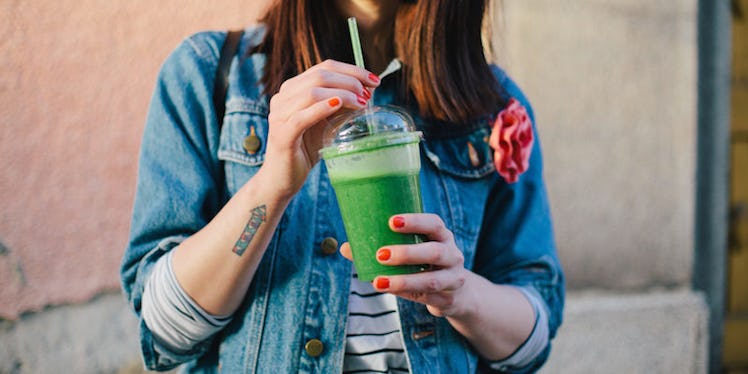
3 Diets That Will Never Give You The Weight-Loss Results You Want
Dieting is nothing new. We're always seeing our favorite celebs rave about the diet they used to "get healthy," lose weight and look fab in that bikini.
We're a very health-conscious generation, but how much do we actually know about the diets everyone keeps swearing by?
Low-carb diets, gluten-free diets and the Paleo diet are said to be weight-loss miracle workers. From a nutritional standpoint, though, they probably won't give you the results you're hoping for. At least, not unless you really know what you're doing.
Here's the real deal:
The Low-Carb Diet
What it promises: Weight loss, eating less sugar
What will actually happen: You will eat more protein and fewer processed foods. But, you will also eat fewer fruits, vegetables, dairy and grains, which you really need to be eating decent daily servings of in order to stay healthy.
Lower-carb diets lead to lower insulin levels, which can promote weight loss, but any weight loss probably comes from not technically getting enough nutrition without the 100 to 150 grams you should have per day. (A low-carb diet ranges from 50 to 100 carbs daily).
The problem: We need to stop bashing carbs because we're forgetting how much we actually need them in order to stay alive. Too much added sugar, like the ones in your favorite snack foods, aren't good for you. But, the natural sugars found in fruits and vegetables are essential.
There's no way you can eat enough of all the essential food groups by following the misconception you aren't even allowed to eat a decent amount of fruits and vegetables.
The takeaway: Cutting out processed foods, which are often high in carbs, is a great step in the right direction when it comes to a healthier diet. But, some of these sugars are essential.
You're much better off getting more of your carbs from fruits, vegetables and whole grains and limiting your added sugar intake than you are trying to restrict your carb intake altogether. Is the stress really worth it?
The Gluten-Free Diet
What it promises: Improved overall health
What will actually happen: You stop eating whole grains and other gluten-containing foods that are actually good for you. While this might mean you eat more fruits and vegetables, which are naturally gluten-free, if you aren't careful about replacing the nutrients you lose in cutting out foods with gluten in them, you could actually deprive yourself of proper nutrition and make yourself sick.
The problem: The diet is intended for people with celiac disease. Some people do consider themselves gluten sensitive, which can be considered a much less severe, but still problematic reaction to gluten.
Some people still seem to think that going gluten-free when you are neither celiac nor gluten sensitive is somehow beneficial for your health. However, not being able to eat gluten requires a lot of dietary supplementation, and it should not be an excuse to eat more gluten-free cake. (It's still cake.)
The takeaway: You can cut back on processed foods like candy and potato chips — as many of them often contain gluten — without needing to go completely gluten-free. It isn't recommended for people who aren't celiac because it's very hard to get the nutrition you need by cutting out so many different types of grains.
The Paleo Diet
What it promises: Fast weight loss
What will actually happen: You will eat more fruits, vegetables, healthy fats and good sources of complete proteins. You will purchase and consume far fewer processed foods than you are probably used to, which is the diet's biggest advantage, according to nutrition professionals.
Will you still lose weight? Maybe, but not for the reasons you think. Eating more fruits and vegetables, especially if you aren't a huge fruit and veggie eater right now, is great for your digestive system. This kind of diet fills you up with nutrient-rich calories instead of tempting you to eat more empty calorie foods.
The problem: It's expensive, for one thing. It also cuts out grains, which provide essential nutrients like B vitamins. Also, just because a food is labeled as Paleo doesn't mean it's healthy. Paleo desserts are still desserts.
This diet is fine if you use it to learn how to eat healthier, but if you use it as an excuse to eat more unhealthy foods just because their ingredients are different, you aren't actually doing yourself any favors.
The takeaway: Healthier eating combined with regular exercise often automatically leads to weight loss, but this takes time. Do it for health, not for shedding pounds.
There is nothing wrong with going on a diet. If it motivates you to pay better attention to what you're eating and gets you excited about a healthier lifestyle, go for it. But, there is no such thing as fast or easy weight loss.
Diet alone, also, cannot completely transform your health. If you want to lose weight, pick a diet and exercise plan you would be willing to stick with for the long term, set some long-term goals and prepare for a slow, but noticeable transformation. It's worth it.
You just need to be patient and make smart choices along the way.